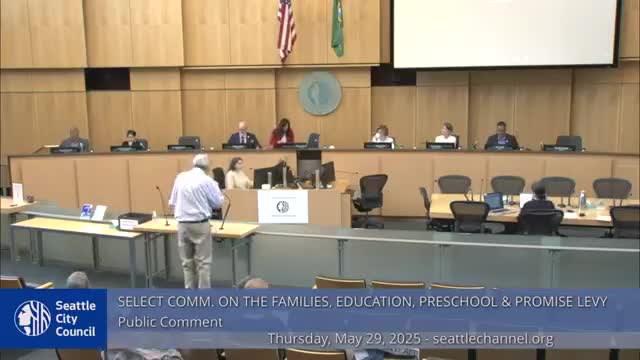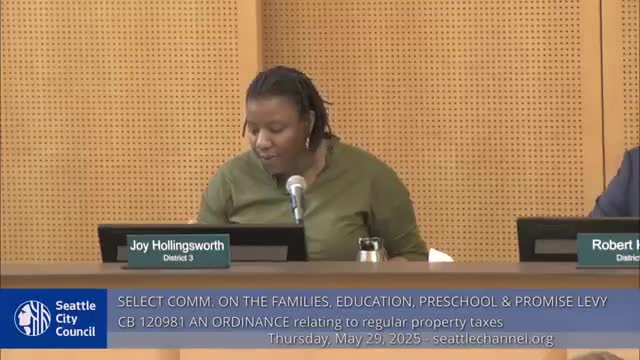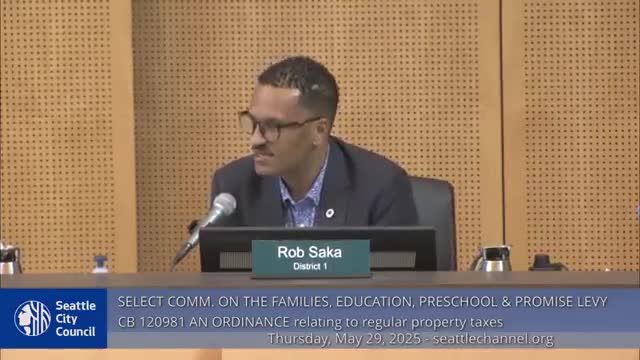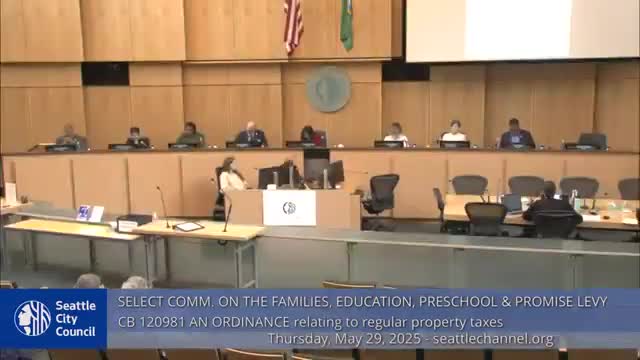Article not found
This article is no longer available. But don't worry—we've gathered other articles that discuss the same topic.

Seattle committee debates levy language on school safety after Garfield parents urge return of officers

Committee hears multiple amendments on preschool feasibility, after‑school programs, restorative practices and foster youth supports

Council debate over Fresh Bucks expansion: advocates urge lift while some members caution on levy scope

